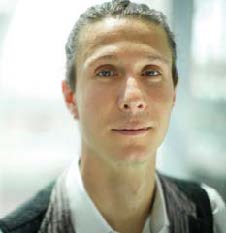What's a Booth Internship Like?
For students in the Full-Time MBA Program, internships are an integral part of the Chicago Booth experience. The students learn about day-to-day life in the fields they are considering and many work on timely and significant projects that affect the bottom line of their host corporations. They also test the approaches to problem solving learned in their Booth coursework.
Between their first and second years, students work in a range of industries, for companies of varying sizes, in locations around the globe. Last summer nearly 17 percent of the class of 2015 worked outside the United States. The top international destination was Latin America; students also traveled to Africa, Europe, and Asia.
For the overall class, consulting and technology were popular industries. While finance—including investment banking and investment management—continues to be a major draw, students pursued opportunities in a range of disciplines. For example, the share of marketing internships grew to 15 percent in 2014, up from 12 percent in 2013. Find more data about interns and the full-time class of 2014 in the Chicago Booth Employment Report.
“Booth’s strengths are really around critical thinking,” said Julie Morton, associate dean for Career Services and Corporate Relations, “and that is a valued skill across all functions and industries.”
Internships are a peek ahead into potential careers. “The internship lets students see how good an actual fit they are in that firm and it lets the firm basically have a 10- to 12-week interview,” Morton said. An internship can confirm a career choice or cause a student to pivot in a new direction.
Interns, of course, aren’t the only beneficiaries, Morton noted. The companies get analytical, creative thinkers who bring fresh approaches and are often candidates for full-time positions after graduation.
Indeed, the students’ first year at Booth prepares them to step into responsible roles right away.
Find out what it was like for six students on their internships in summer 2014:
The Secret Sauce of Fast-Food Operations

Alex Brand worked for East Africa’s first Subway franchisee in Nairobi, Kenya, helping to open restaurants, train staff, and oversee logistics. After college, he worked as a chef before taking a yearlong bike trip across Europe and Asia to gather recipes and explore culinary traditions. Before enrolling at Booth, he owned a globally inspired food truck in Minneapolis
Why did you choose this opportunity?
I wanted to combine my interests in emerging markets and in quick-service restaurants. I was interested in learning the operating systems and controls that enable chains to handle large volumes with a high level of consistency.
How did Booth prepare you?
My operations classes provided the framework for finding the optimal way to import goods from the United States and the Middle East with the lowest shipping and holding costs. The LEAD module, which helped me identify my personal leadership style, paid off when training Kenyan managers who were not accustomed to a Western management style.
What were the big takeaways, or lessons learned?
Nairobi is a hub for entrepreneurs who recognize this opportunity in East Africa with the development of a consumer culture and lack of market organization. If you are ambitious, hardworking, and creative, there is boundless opportunity.
What was the most challenging part?
There are periodic power outages; the traffic in Nairobi is terrible; and the pollution is bad. Petty crime is a constant problem, and the 2013 attack at the Westgate mall serves as a reminder of the underlying threat of terrorism.
Were there any surprises?
Every day. To name a few, someone tapped into our electricity wire and stole our power. At another store, we had water stolen from our receptacle tank. A lot of the systems that work well in the United States or Western Europe don’t apply in a place like Nairobi because the technology isn’t the same, the supply chain is different, or they just don’t fit in an emerging market.
Did you work crazy hours?
Some nights I would be at the store until 11 p.m., midnight, or 1 a.m. because something went wrong, or something needed to get fixed. There’s no one else to ask, “Hey, can you take care of this for me?” because you’re that person.
How did it influence your career path?
It confirmed that I want to pursue a career in the restaurant industry. After graduation, I plan to stay in Chicago and launch my own quick-serve restaurant concept that serves healthy food yet draws on the convenience and controls of the fast-food model.